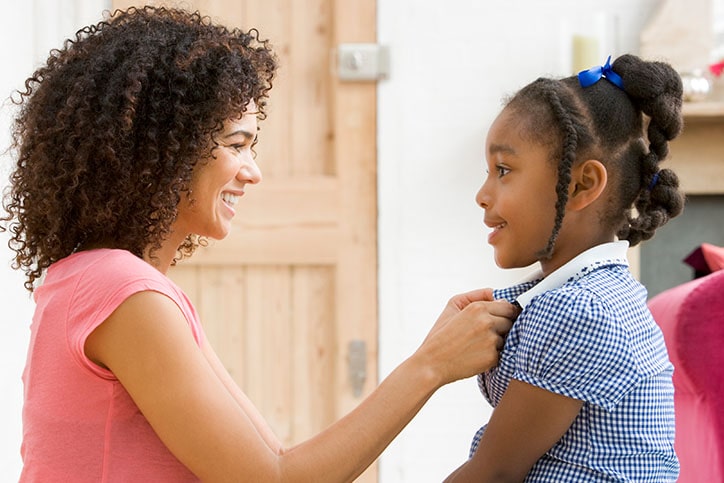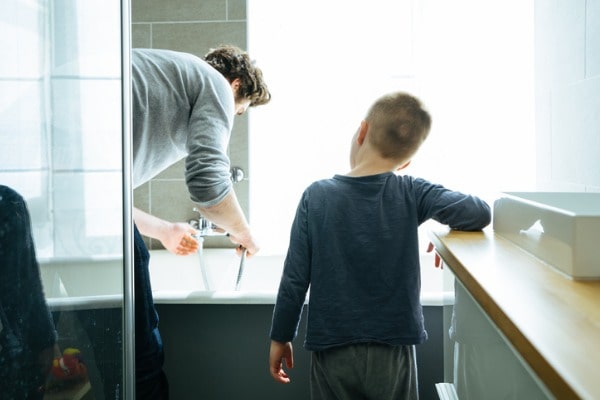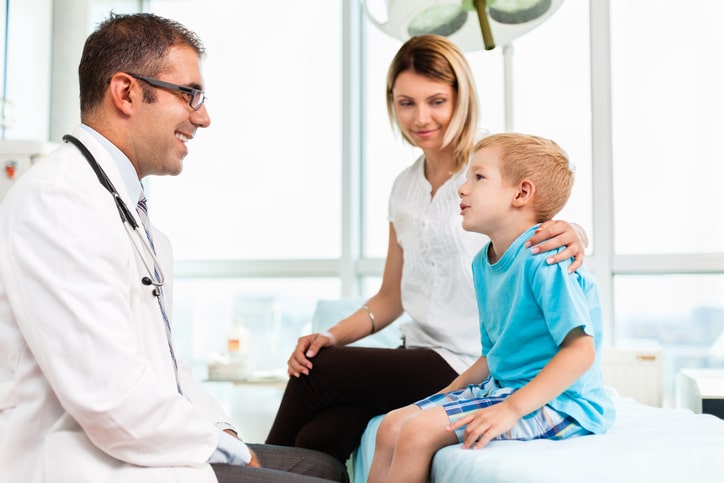Parenting a Child with ADHD
Tips to help parents of children with ADHD.
- 3 min read
- health & wellness

ADHD stands for attention deficit hyperactivity disorder, and it’s one of the most commonly diagnosed childhood medical conditions. Brain development occurs differently in those affected by ADHD. It specifically impacts one’s ability to regulate attention and emotions. In children, this can lead to behavioral issues such as hyperactivity, impulsiveness, daydreaming, disengagement, disorganization, angry outbursts, inability to follow directions or rules, or difficulty getting along with others.
While these types of behavioral issues are typical among many children, the problems can be pronounced in kids with ADHD. Here are some everyday actions parents can take to help their child manage:

Be consistent
Structure is crucial to helping kids manage ADHD. To help with this, experts recommend simplifying and organizing your child’s life as much as possible. Start with your child’s daily routine. What time does he or she wake up, go to bed, do homework, bathe, and eat meals? It should be the same every day. The importance of proper sleep and nutrition cannot be emphasized enough when parenting a child with ADHD. For co-parents, it’s important to keep your child’s routine consistent between homes. Consistency, like simplification and organization, is vital to maintaining structure in your child’s life. To provide further structure, simplify the number of choices you offer to your children. The question is not, “What do you want for breakfast?” The question is, “Do you want cereal or eggs for breakfast?” In the same vein, limit the number of distractions in the house. Turn off the TV during meal or homework times. Limit your child’s exposure to overstimulating video and computer games. Visually organizing your child’s living space is also beneficial. Keep toys in one place, and schoolbooks and backpacks in another.
Communicate positively
Children with ADHD need more structure, order, and discipline than children without ADHD, but they still need positive parenting. Positive parenting is an approach to raising children that focuses on parents providing encouragement and support to teach proper behaviors; rather than reprimands, discipline, or punishments in response to a child’s misbehavior.
The benefits of positive parenting are overwhelming, and one specific advantage is that it helps children learn how to manage their feelings and behaviors. If you and your co-parent can both agree to use the positive parenting approach, this can be especially beneficial, as it creates consistency in how you are both communicating with your child.

Stay calm
As hard as it may be some days, it’s important to stay calm, cool, and collected as much as possible. Children mimic the behaviors they witness on a day-to-day basis. You can help your child learn to manage his or her feelings but managing your own in a healthy way.

Professional resources are available to help parents of kids with ADHD
Medical experts estimate that anywhere from 5 to 11 percent of American children have ADHD. You are not alone in this struggle, and there are resources available to you:
- Your child’s pediatrician
- American Academy of Pediatrics
- Centers for Disease Control and Prevention (CDC)
- American Academy of Child & Adolescent Psychiatry (AACAP)
- CHADD (a non-profit organization that helps both children and adults with ADHD)
Additionally, you may choose to reach out to a counselor or therapist to assist your child in learning how to manage symptoms of ADHD. It’s also beneficial to have regular meetings with teachers, school administrators, coaches, and/or counselors to stay updated on your child’s progress and any behavioral changes.
For co-parents, it can be helpful to document important information gathered during these meetings in one, shared place. TalkingParents offers the Info Library feature, which allows you to create customizable cards holding information for both parents to access.